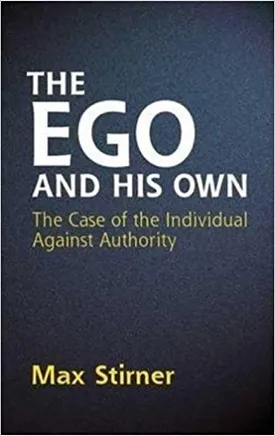The Ego and His Own: The Case of the Individual Against Authority by Max Stirner
Max Stirner’s book, ‘The Ego and His Own: The Case of the Individual Against Authority’ is one of the most important works of philosophical anarchism and individualism. Originally published in 1844, the book has been incredibly influential on the development of individualistic thought and ideas of personal freedom throughout the years. The main argument of the book is that all authority is derived from egoism and unless people fight for their own rights, they will be oppressed and exploited.
Stirner starts his book by arguing that all authority, be it the state or the law, is based on egoism. He views the government, laws, morality and religion as forms of oppression. He begins to explore the individual's desire for autonomy and freedom from these confines by rejecting all higher principles and values than their own. Stirner claims that all authority has the same result - a diminishment of individual freedom and autonomy. Therefore, in order for one to truly become free, they must separate themselves from any imposed authority. The individual should not live according to external guidelines or morals, but instead should create their own values and ideals that fit their own needs and desires.
Stirner further explores this idea in his book, looking at how the social contract has been used historically as a way to control individuals and keep them in line with the ruling class. He states that while the social contract once promised freedom and autonomy, it has since been perverted by those in power in an effort to keep their own interests at the forefront. Stirner thus argues that the social contract is not a sufficient means of freeing individuals, as it does not go far enough in restoring autonomy to its participants.
Instead, Stirner proposes that individuals reject all forms of authority and create their own values and beliefs. He calls this concept ‘egoism’, which is a belief that one should follow only their own desires, values, and beliefs and reject those of the state or other authority figures. With this in mind, Stirner argues that humans should be free to pursue their own goals and ideals, free from oppression or exploitation.
By exploring these ideas, Stirner shows that individuals should have the freedom to pursue their own interests and desires. He argues that authority figures in society have limited people’s freedom and autonomy, and as such, it is important to reject all imposed beliefs and values and create one’s own. Stirner ultimately believes in individual autonomy and freedom, and his arguments are still very relevant today.
The Ego and His Own: The Case of the Individual Against Authority is an important and influential book, and its ripple effects are still felt to this day. Stirner’s book offers a unique and powerful perspective on individual autonomy and freedom. It is a must-read for anyone interested in philosophical anarchism and individualism, and it is sure to make readers think twice about the importance of individual autonomy in modern society.

